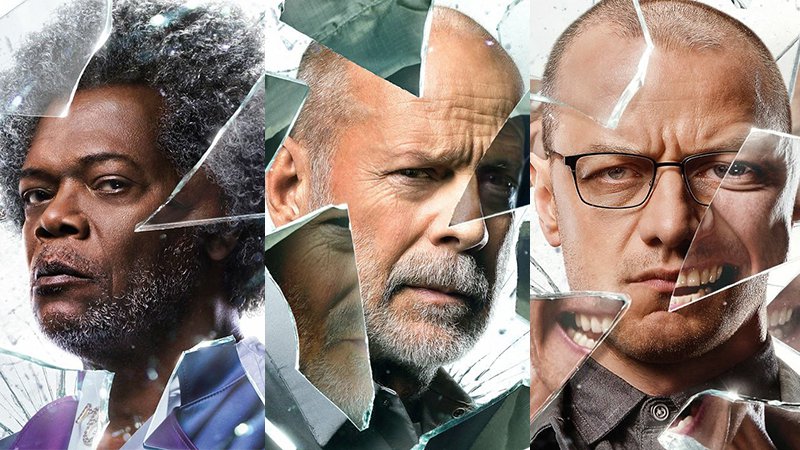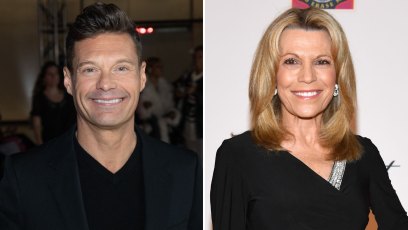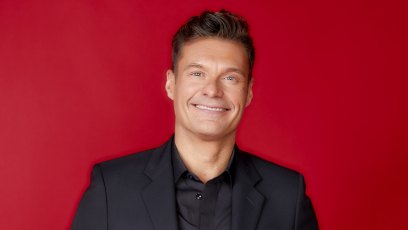
Everything You Need To Know About ‘Glass,’ M. Night Shyamalan’s Sequel To Both ‘Unbreakable’ And ‘Split’
Hollywood would probably make more headlines if there wasn’t a sequel to a hit film in the works; or if it hadn’t been designed as a franchise at the outset. But what makes M. Night Shyamalan’s forthcoming Glass so special is that it’s a sequel to a pair of films that were released by two different studios seventeen years apart from each other, featuring casts from both, most notably Bruce Willis, Samuel L. Jackson, and James McAvoy.
Universal, which will release the film in America while Disney will do so overseas, describes the film this way: “M. Night Shyamalan brings together the narratives of two of his standout originals — 2000’s Unbreakable, from Touchstone, and 2016’s Split, from Universal — in one explosive, all-new comic-book thriller: Glass. From Unbreakable, Bruce Willis returns as David Dunn as does Samuel L. Jackson as Elijah Price, known also by his pseudonym Mr. Glass. Joining from Split are James McAvoy, reprising his role as Kevin Wendell Crumb and the multiple identities who reside within; and Anya Taylor-Joy as Casey Cooke, the only captive to survive an encounter with The Beast. Following the conclusion of Split, Glass finds Dunn pursuing Crumb’s superhuman figure of The Beast in a series of escalating encounters, while the shadowy presence of Price emerges as an orchestrator who holds secrets critical to both men.” Keep reading to learn more about Unbreakable, Split, and Glass!
Unbreakable (2000)
In the original Unbreakable — the writer/director’s first film after the phenomenal success of The Sixth Sense — Bruce Willis is security guard David Dunn, who, having been the sole survivor of a high-fatality train crash, finds himself at the center of a mysterious theory that explains his consistent physical good fortune. When news of his survival is made public, a man whose own body is excessively weak (Samuel L. Jackson as Elijah Price) tracks him down in an attempt to explain his unique unbreakable nature, gradually revealing himself to be the “villain” of the piece.
“When you first meet David Dunn he is totally off balance. He is an average man in all respects who is truly lost,” says Night in studio-provided comments. “When he steps onto that train, he has no idea where he is going in his life and has hit rock bottom. When he crashes, both literally and figuratively, he can then start to hear again this thing that has called him before in his life that he ignored; and this time, he follows it to find out what it means.
“When he meets Elijah, he is at an incredibly vulnerable place and is grasping to find answers as to why he survived,” he adds. “Elijah points him in the right direction by asking him questions about his past and analyzes what he has done with his life to that point, and the choices he has made, until he has this theory and says, ‘I think I know who you are in this whole greater pattern.’ I guess Elijah’s really like a prophet.”
Split (2017)
In Split, James McAvoy’s Kevin has evidenced 23 personalities — each with unique physical attributes — to his trusted psychiatrist, Dr. Fletcher. However, there remains one still submerged who is set to materialize and dominate all the others. Compelled to abduct three teenage girls led by the willful, observant Casey, Kevin reaches a war for survival among all of those contained within him — as well as everyone around him — as the walls between his compartments shatter apart.
Night explains, “I’m taking something you believe and pushing it into the fantastic realm. I wondered what would happen if, in Dissociative Identity Disorder, each individual personality believes they are who they are, 100 percent. If one personality believes they have diabetes or high cholesterol, can their body chemically change to that belief system? And what if one personality believed it had supernatural powers? What would that look like?”
For his part, James McAvoy reflects, “I read the first 10 pages and thought, ‘Wow, what is this?’ Then I read the next 10 pages and thought, ‘What is that?’ It felt like I was being continually confronted with something completely different. That’s the joy of what Night does so well. He keeps an audience on their toes trying to figure out what the film is: Are we watching a thriller, a psychological drama, horror, sci-fi or something supernatural? And this film is all of those genres.”
Glass (2019)
And Glass promises to be all of that and much more, although Night insists that he is determined to not allow this to move into the territory of a full-fledged superhero film. As he explained to i09, “I think there’s definitely a philosophical conflict at the center of the movie which is, you know, are they deluded to think these things [that they have extraordinary abilities]? Or is that belief in oneself ultimately something that truly makes them something more? That kind of belief is a tenuous thing for people. Even if we can do extraordinary things, is it something that we’re interpreting when we do that or are some people really special or not? The movie’s really about doubt versus belief and so every scene has that weight to it and that struggle is there.”

(Photo Credit: Universal Pictures)
In an interview with Empire, he detailed how the concept for Glass came about: “I wrote this character [Kevin] and a bunch of the scenes you saw in [Split] for the Unbreakable script. He was the original antagonist and David Dunn was going to meet him in the original script. I couldn’t get it right, I couldn’t get the balance right. It just kept wanting to eat away at the other movie. I pulled Kevin out. I wanted a really slow burn movie and Kevin’s not a slow burn. I said, ‘Let me pull him out for a second and concentrate on these other two characters.’ I came up with the idea for Elijah. He was always an advisor. The three of them were always in it, but he went from benevolent advisor to the opposite of David Dunn! It became so obvious. Then I said I’d do this next as the next piece in this, but I guess I felt that the reaction at the time was weird and wonky to Unbreakable, especially in the United States. ‘What is this? A movie about comic books?’ The studio didn’t want to sell it as comic books, because they felt comic books were not sellable; they didn’t think there was an audience for it. Anyway, I was too young and didn’t have any pull at the time to say, ‘Wait a minute!’ Ironically now, Disney, that’s all they do.”
Look for Glass in theaters beginning Jan. 18.





































